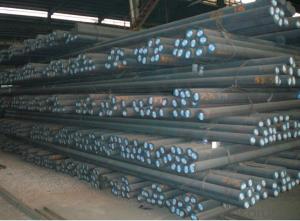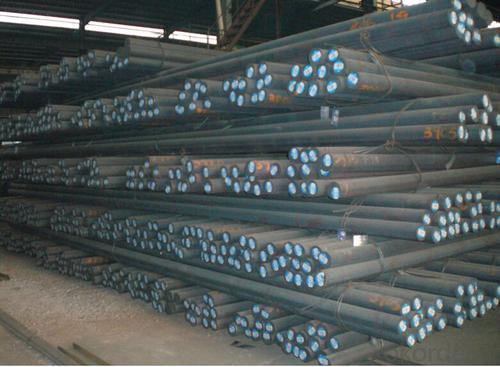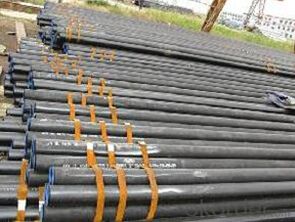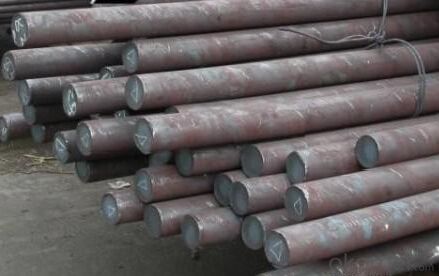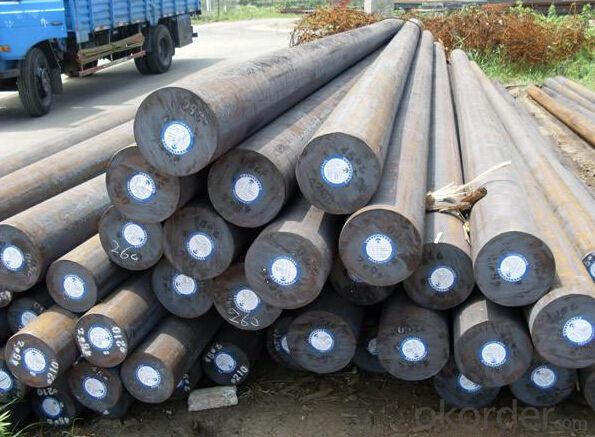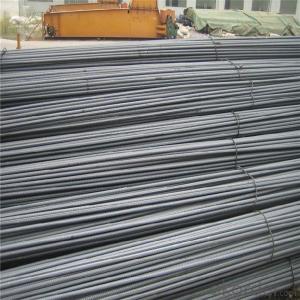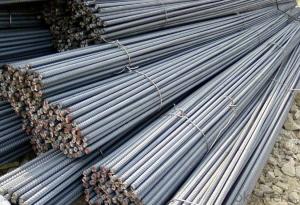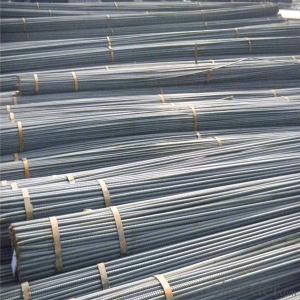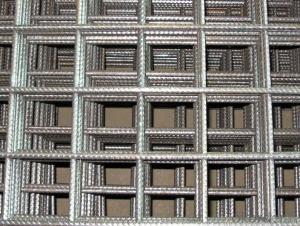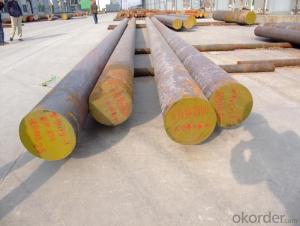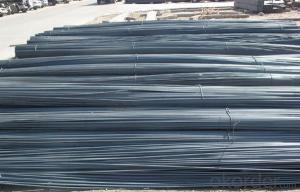Dia5-50mm Deformed Steel Rebar/Reinforcing Steel Bars/Iron Rod
- Loading Port:
- Qingdao
- Payment Terms:
- TT OR LC
- Min Order Qty:
- 5 m.t.
- Supply Capability:
- 100000 m.t./month
OKorder Service Pledge
Quality Product, Order Online Tracking, Timely Delivery
OKorder Financial Service
Credit Rating, Credit Services, Credit Purchasing
You Might Also Like
Specification
Type:
Carbon Steel,Spring Steel,Bearing Steel,Gear Steel,Deformed Steel,Stainless Steel,Alloy Steel
Shape:
Steel Coil,Steel Sheet,Steel Wire Rod,Steel Flat Bar,Steel Square Bar,Steel Angle,Steel Round Bar,Steel Billets
Technique:
Hot Rolled,Cold Rolled,Cold Drawn,ERW,Forged,Saw,Extruded,EFW,Spring
Surface Treatment:
Galvanized,Coated,Copper Coated,Color Coated,Oiled,Dry,Chromed Passivation,Polished,Bright,Black,PVDF Coated
Certification:
ISO,SGS,BV,IBR,RoHS,CE,API,BSI,UL
Thickness:
5-50mm
Width:
5-50mm
Length:
6-12m
Outer Diameter:
5-50mm
Net Weight:
100
Packaging:
seaworthy packaging
Dia5-50mm Deformed Steel Rebar/Reinforcing Steel Bars/Iron Rod
Detailed Information of Dia5-50mm Deformed Steel Rebar/Reinforcing Steel Bars/Iron Rod
| Name | Steel Round Bar |
| Shape | Round Bar/Square Bar/Flat Bar/Plate/Wire |
| Standard | GB/ASTM/SAE/AISI/DIN/JIS/EN/BS |
| Surface Treatment: | Black/Peeling/Polished/Machined |
| Delivery Condition: | Hot Rolled or Forged/Peeled or Black Surface |
| Test | SGS/UT 100% Elements Testing |
| Certificate: | ISO/Mill Certificate |
| Service: | 24 hours online service / |
| more than 20 years trading and manufacture | |
| Quality Assurance: | the third party inspection, such as SGS, BV, TUV…etc. is acceptable |
| Packaging Details: | Seaworthy Packaging or as per customer's packing instruction |
Product Overviews of Dia5-50mm Deformed Steel Rebar/Reinforcing Steel Bars/Iron Rod
| Product Name | Typical Grades | Diameter(mm) | Standard Adopted |
| Carbon Steel | 20 (1020/S20C/C22) | ||
| 40 (1040/S40C/C40) | Ø16-Ø300 | ||
| 45 (1045/S45C/C45) | |||
| Bearing Steel | GCr9 (51100/SUJ1) | ||
| GCr15 (52100/SUJ2/100Gr6) | Ø12-Ø250 | ||
| GCr9SiMn (A485-Gr.1/SUJ3) | GB/SAE/ | ||
| Cr-Mo Steel | 20Cr (5120/SCr420H/20Cr4) | JIS/DIN | |
| 40Cr (5140/SCr440/41Cr4) | Ø12-Ø250 | ||
| 42CrMo(4140/SCM440/42CrMo4) | |||
| Gear Steel | 20CrNiMo | ||
| 20CrMn(5115/SMnC420/20MnCr5) | Ø16-Ø600 | ||
| 20CrNiMo(8620/SNCM220/20CrMiMo2) |
Company Introduction of Dia5-50mm Deformed Steel Rebar/Reinforcing Steel Bars/Iron Rod
CNBM International Corporation is the most import and export platform of CNBM group(China National Building Material Group Corporation) ,which is a state-owned enterprise, ranked in 270th of Fortune Global 500 in 2015.
With its advantages, CNBM International are mainly concentrate on Cement, Glass, Iron and Steel, Ceramics industries and devotes herself for supplying high quality series of refractories as well as technical consultancies and logistics solution.
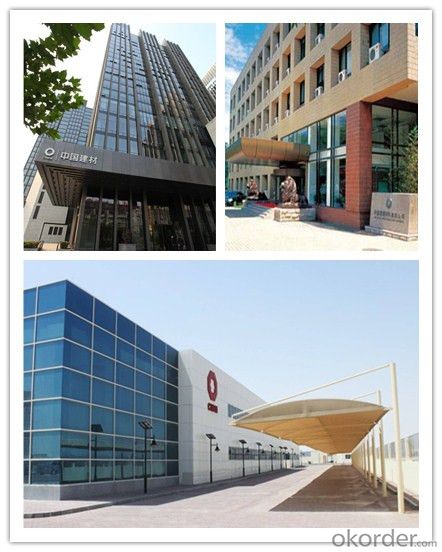
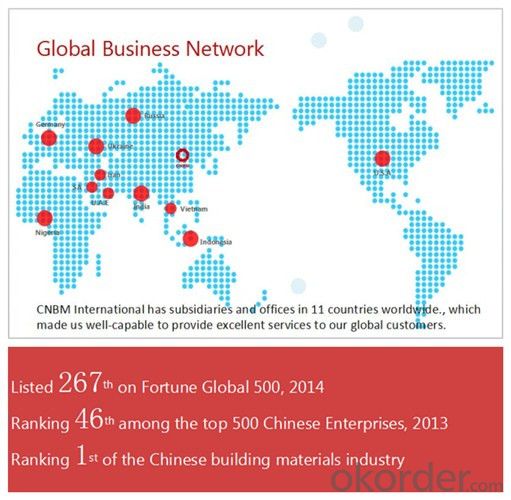
| After-sale service | l CNBM provides the services and support you need for every step of our cooperation. We’re the business partners you can trust; you can relax and get on with doing business. |
| l For any problem, please kindly contact us at any your convenient time, we’ll reply you in our first priority within 24 hours | |
| Advantages | l Industry experience over 20 years. |
| l Shipment of goods -More than 70 countries worldwide. | |
| l The most convenient transport and prompt delivery. | |
| l Competitive price with best service. | |
| l High technical production line with top quality products. | |
| l High reputation based on best quality products. | |
Packaging & Delivery of Dia5-50mm Deformed Steel Rebar/Reinforcing Steel Bars/Iron Rod
| Packaging Detail | Sea worthy packing /as per customer's packing instruction |
| Delivery Detail | 15 ~ 40 days after receiving the deposit |
Products Show
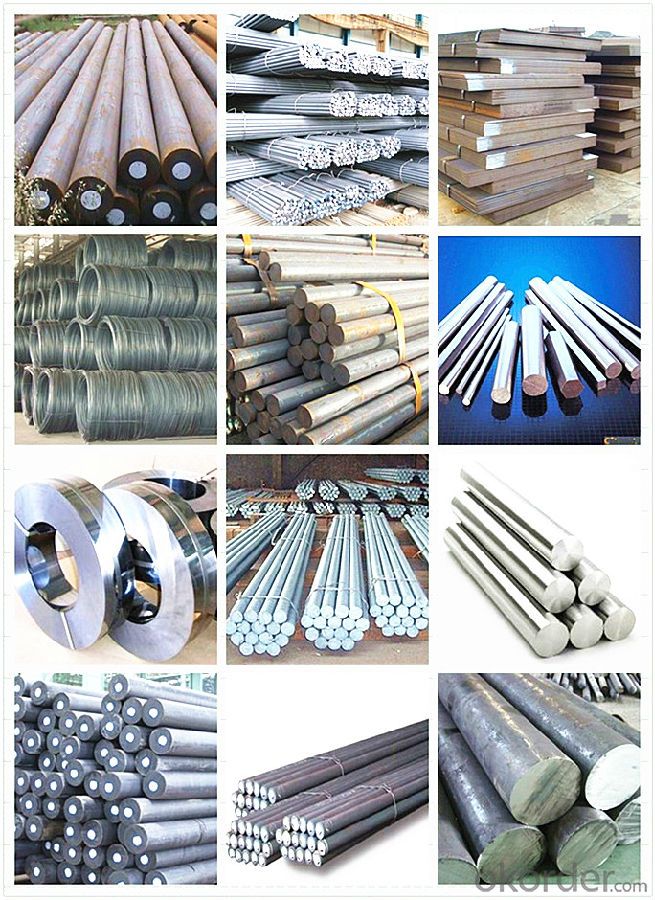
FAQ:
| Are you a trading company or manufacturer? | Manufacturer |
| What’s the MOQ? | 1000m2 |
| What’s your delivery time? | 15-20 days after downpayment received |
| Do you Accept OEM service? | Yes |
| what’s your delivery terms? | FOB/CFR/CIF |
| What's the Payment Terms? | 30% as deposit,70% before shipment by T/T |
| Western Union acceptable for small amount. | |
| L/C acceptable for large amount. | |
| Scrow ,Paybal,Alipay are also ok | |
| Why choose us? | Chose happens because of quality, then price, We can give you both. Additionally, we can also offer professional products inquiry, products knowledge train (for agents), smooth goods delivery, excellent customer solution proposals. |
| What's your available port of Shipment? | Main Port, China |
| What’s your featured services? | Our service formula: good quality+ good price+ good service=customer's trust |
| Where are your Market? | Covering more than 160 countries in the world |
- Q: Can special steel be used in the production of precision instruments?
- Yes, special steel can be used in the production of precision instruments. Special steel, known for its high strength, corrosion resistance, and heat resistance, provides the necessary durability and stability required for precise measurements and operations in precision instruments.
- Q: How does special steel perform in cryogenic creep resistance?
- Special steel is known for its exceptional performance in cryogenic creep resistance. Cryogenic creep refers to the deformation that occurs in materials under constant stress at extremely low temperatures. Special steel, due to its unique composition and manufacturing processes, exhibits superior resistance to this type of deformation compared to other materials. The low temperature environment encountered in cryogenic applications can cause conventional materials to lose their strength and become more susceptible to creep deformation. However, special steel is specifically designed to withstand these challenging conditions. Its composition typically includes a higher proportion of alloying elements such as nickel, chromium, and molybdenum, which enhance its mechanical properties and improve its resistance to creep at cryogenic temperatures. Furthermore, special steel undergoes rigorous heat treatment and processing techniques to optimize its microstructure and strengthen its grain boundaries. This results in a material with improved strength, toughness, and resistance to creep deformation, even at extremely low temperatures. The exceptional performance of special steel in cryogenic creep resistance makes it highly suitable for applications that involve storage, transportation, or processing of materials at cryogenic temperatures. Industries such as aerospace, energy, and scientific research heavily rely on special steel for the construction of cryogenic storage tanks, superconducting magnets, and cryogenic valves, among others. In conclusion, special steel exhibits remarkable performance in cryogenic creep resistance due to its unique composition, heat treatment, and processing techniques. Its ability to maintain its mechanical properties and resist deformation at extremely low temperatures makes it an ideal choice for various cryogenic applications.
- Q: Can special steel be used in the production of springs for automotive suspension?
- Yes, special steel can be used in the production of springs for automotive suspension. Special steel, such as alloy steel or high-carbon steel, offers excellent strength, durability, and resistance to fatigue, making it suitable for handling the heavy loads and constant vibrations involved in automotive suspension systems.
- Q: How does special steel perform in defense applications?
- Due to its exceptional properties and performance, special steel holds great value in defense applications. Its superior strength and toughness make it highly resistant to impact and penetration, providing crucial protection against projectiles, explosives, and other threats. Moreover, special steel's excellent hardness and wear resistance make it an ideal choice for armor plates, vehicle components, and protective gear. Its hardness allows it to withstand high-velocity impacts, while its wear resistance ensures durability and longevity even in extreme conditions. Additionally, special steel exhibits outstanding corrosion resistance, which is essential in defense applications exposed to harsh environments, saltwater, and chemicals. This resistance helps maintain the structural integrity and performance of defense equipment, even in challenging conditions. Furthermore, special steel can be customized to meet specific requirements, allowing for tailored defense applications. By adjusting the alloy composition and heat treatment processes, special steel can be optimized for purposes such as ballistic armor, submarine hulls, or aircraft components. Overall, special steel's exceptional strength, toughness, hardness, wear resistance, corrosion resistance, and customizability make it an invaluable material in defense applications. It provides the necessary protection, durability, and reliability required to safeguard military personnel, vehicles, and equipment in various challenging scenarios.
- Q: What are the advantages of using special steel in construction?
- There are several advantages of using special steel in construction. Firstly, special steel offers exceptional strength and durability, making it suitable for high-rise buildings, bridges, and other structures that require long-term stability. Additionally, special steel is resistant to corrosion, which enhances its lifespan and reduces maintenance costs. Furthermore, special steel can be fabricated into various shapes and sizes, allowing for flexible and efficient construction designs. Lastly, due to its recyclability, special steel is an environmentally friendly choice that promotes sustainability in the construction industry.
- Q: Can special steel be used for making aerospace components?
- Indeed, aerospace components can be manufactured using special steel. Also referred to as aerospace steel or aircraft steel, this specific type of steel is meticulously designed to meet the rigorous demands and strict requirements of the aerospace sector. It possesses outstanding properties such as exceptional strength, durability, and heat resistance, all of which are vital for enduring the extreme conditions faced by aircraft components during flight. Aerospace components, including landing gear, engine parts, fasteners, and structural elements, often necessitate materials that can maintain their integrity even when subjected to high temperatures, stress, and corrosive environments. Special steel alloys are developed to possess excellent mechanical properties, such as high tensile strength, fracture toughness, and resistance to fatigue, creep, and corrosion. These properties render them suitable for crucial aerospace applications where safety and reliability are of the utmost importance. Furthermore, special steel can be customized to meet specific requirements, such as weight reduction, improved fuel efficiency, and enhanced performance. By employing advanced alloying techniques and heat treatments, aerospace steel can be engineered to possess desirable characteristics like increased hardness, wear resistance, and dimensional stability. This enables the production of lighter and more efficient aerospace components without compromising on strength or safety. In conclusion, special steel stands out as the preferred material for manufacturing aerospace components due to its exceptional mechanical properties, heat resistance, and corrosion resistance. Its ability to withstand extreme conditions and be tailored to specific requirements makes it an ideal choice for producing critical parts used in the aerospace industry.
- Q: What are the different machining techniques for special steel?
- There are several machining techniques that can be used for special steel, depending on the specific requirements and characteristics of the steel. Some common machining techniques include turning, milling, drilling, grinding, and broaching. Each technique has its own advantages and is chosen based on factors such as the desired shape, size, and surface finish of the steel component. Additionally, advanced techniques like electrical discharge machining (EDM) and laser cutting can be employed for special steel, offering precise and efficient machining solutions.
- Q: How does special steel contribute to the manufacturing of defense equipment?
- The unique properties and characteristics of special steel play a vital role in the production of defense equipment. To begin with, special steel is renowned for its exceptional strength and durability, making it perfect for constructing various defense equipment components. This high strength enables the creation of lightweight yet sturdy structures, allowing for the development of advanced weaponry and protective gear. Additionally, special steel possesses remarkable resistance to corrosion and wear, making it highly suitable for defense equipment operating in harsh environments. Its resistance to corrosion ensures that the equipment remains functional and dependable even in extreme conditions, including exposure to saltwater or acidic environments. Moreover, special steel offers outstanding heat resistance, a crucial feature for defense equipment like missile casings or jet engine components. Its ability to withstand high temperatures without compromising its integrity or mechanical properties enables the production of more efficient and powerful defense systems. Furthermore, special steel can be customized to meet specific requirements, facilitating the manufacturing of personalized defense equipment. It can be alloyed with various elements to enhance specific characteristics, such as increased hardness, improved magnetic properties, or better impact resistance. This adaptability allows for the production of defense equipment tailored to the precise needs of military applications, enhancing overall performance. In conclusion, special steel significantly contributes to the manufacturing of defense equipment through its exceptional strength, resistance to corrosion and wear, heat resistance, and customization options. These properties enable the creation of more advanced, reliable, and efficient defense systems that meet the demanding requirements of modern military operations.
- Q: How does special steel contribute to the manufacturing of hydraulic components?
- Due to its unique properties and characteristics, special steel plays a vital role in the manufacturing of hydraulic components. These components, including cylinders, pumps, valves, and fittings, operate under extreme conditions and high pressure. Therefore, they require materials capable of withstanding such demanding environments. Special steel, also referred to as alloy steel, is specifically designed to possess exceptional strength, durability, and resistance to corrosion and wear. These qualities make it an ideal material for hydraulic components, as they must endure high pressures, continuous movement, and exposure to various fluids. The impressive strength of special steel allows hydraulic components to handle heavy loads and resist deformation, ensuring their long-term reliability and performance. Furthermore, the durability of special steel ensures that hydraulic components can withstand continuous stress and movement without experiencing premature failures. An additional significant advantage of special steel is its resistance to corrosion and wear. Hydraulic components often come into contact with different fluids, such as water, oil, and chemicals. The corrosion resistance of special steel protects the components from degradation and extends their lifespan. Moreover, its resistance to wear minimizes the damage caused by friction, resulting in smooth operation and reduced maintenance requirements. Furthermore, special steel is easily machinable and can be formed into complex shapes. This versatility enables the production of intricate hydraulic components with precise specifications. Manufacturers can tailor these components to meet the specific requirements of different hydraulic systems, ensuring optimal performance and efficiency. In conclusion, special steel significantly contributes to the manufacturing of hydraulic components by providing the necessary strength, durability, corrosion resistance, and wear resistance. Its unique properties enable the production of high-quality and reliable hydraulic components that can withstand demanding environments and ensure the smooth operation of hydraulic systems.
- Q: What are the different high-pressure grades of special steel?
- There exist several distinct varieties of special steel that are designed to withstand high pressures, each possessing its own unique characteristics and uses. Some frequently employed high-pressure grades of special steel encompass the following: 1. 4130 steel: This particular grade of steel is renowned for its exceptional strength, toughness, and resistance to heat. It finds considerable application in the fabrication of high-pressure tubing and components for the oil and gas industry. 2. 4340 steel: Distinguished by its extraordinary strength and toughness, this grade of steel is commonly utilized in the production of critical components like high-pressure valves, gears, and other crucial parts in industries such as aerospace, defense, and automotive. 3. 316 stainless steel: Highly resistant to corrosion and boasting excellent high-temperature properties, this stainless steel grade is frequently employed in high-pressure scenarios like pipelines, heat exchangers, and pressure vessels within the chemical and petrochemical industries. 4. 17-4 PH stainless steel: Offering a combination of high strength, superb corrosion resistance, and good toughness, this stainless steel grade often finds application in high-pressure pump components, turbine blades, and other vital parts within industries like power generation and aerospace. 5. F22 steel: Classified as a low-alloy steel with remarkable high-temperature strength and exceptional resistance to creep, this grade of steel is commonly used in high-pressure and high-temperature environments such as boilers, pressure vessels, and piping systems found in power plants and refineries. The aforementioned examples represent just a small selection of the available high-pressure grades of special steel. The appropriate grade choice is contingent upon the specific requirements of the application, encompassing factors such as pressure, temperature, corrosion resistance, and mechanical properties.
Send your message to us
Dia5-50mm Deformed Steel Rebar/Reinforcing Steel Bars/Iron Rod
- Loading Port:
- Qingdao
- Payment Terms:
- TT OR LC
- Min Order Qty:
- 5 m.t.
- Supply Capability:
- 100000 m.t./month
OKorder Service Pledge
Quality Product, Order Online Tracking, Timely Delivery
OKorder Financial Service
Credit Rating, Credit Services, Credit Purchasing
Similar products
Hot products
Hot Searches
Related keywords
